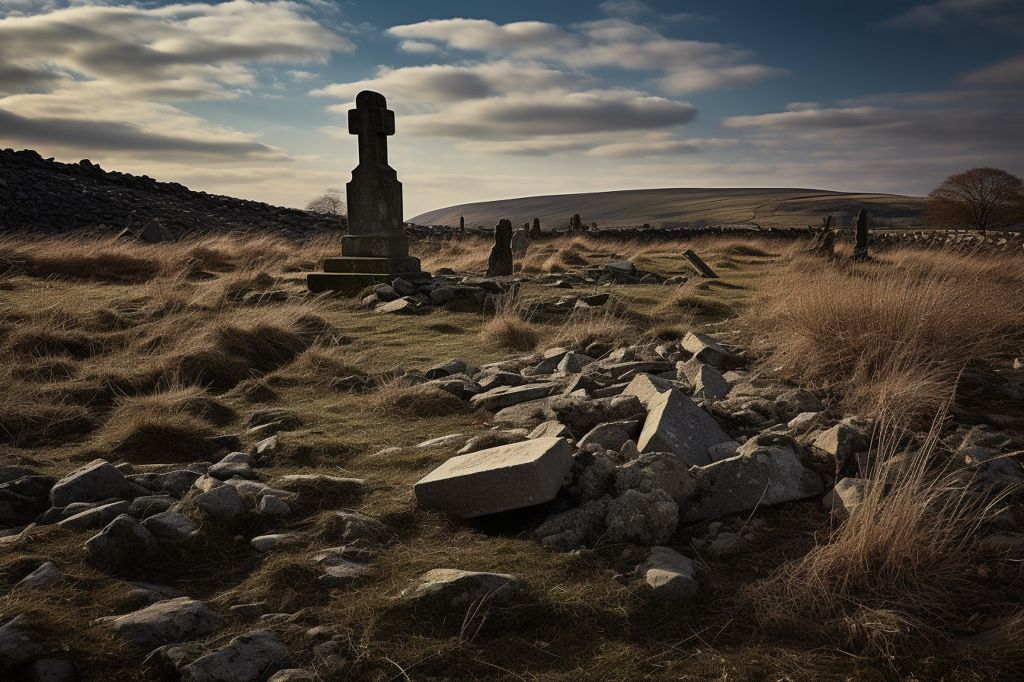Welverdiend Farm, located in Vredendal on the West Coast, is the home to many generations of families who are now battling for ownership and heritage against the current proprietor, Truter Lutz. The Department of Agriculture has proposed purchasing the part of the farm where the tenants live to guarantee their tenancy, but Mr. Lutz declined. The Surplus People Project supports the farm inhabitants, stressing the negative impact that relocation would have on their way of life, while the property owner’s legal counsel counters emotional considerations by asserting that the land was acquired free of any land claims or burdens. The outcome of the legal battle will have far-reaching consequences for the lives of the inhabitants and their connection to the land.
Located within the scenic surroundings of Vredendal on the West Coast, Welverdiend Farm has been the dwelling place for numerous family generations who are now confronted with the threat of eviction from the land they hold close to their hearts. The existing proprietor, Truter Lutz, gained possession of the estate in 2015 for the purpose of commercial agriculture and intends to establish residences for his employees on the property, resulting in a conflict over land entitlement and a collision of cultural perspectives.
The inhabitants of Welverdiend Farm, primarily composed of long-term tenants, are staunchly opposed to leaving their homes and relocating to a township in Vredendal North due to worries about crime levels and a considerable shift in their way of life. Their emotional connection to the land, marked by family burial sites on the property, has only intensified their determination to stay on the farm.
Department of Agriculture’s Involvement
Entering the heart of the matter is the Department of Agriculture, Land Reform, and Rural Development, which has proposed purchasing the part of the farm where the tenants live in an attempt to guarantee their tenancy. Mr. Lutz has declined this proposal, and the case is now pending a hearing in the Land Claims court.
As the legal dispute progresses, it is crucial to explore the rich background and narratives that exist among these tenants. Andreas Finana, a man with deep connections to the land, reflects on his upbringing on the farm and the cherished memories of his past. Having seen the farm change ownership three times since his birth, Finana hopes to end his days on the same ground and rest beside his ancestors.
Life on the Farm: A Cherished Way of Life
The sense of safety and serenity that encompasses farm living is a priceless quality that the residents of Welverdiend value deeply. Anna and Dawid Saal, an older couple who have lived their entire lives on the farm, wrestle with the implications of the eviction notice and the possibility of leaving their son’s grave on the property.
Thys Beukes, another tenant and previous seasonal worker, shares concerns about the possible effects of relocation, not just for the elderly but also for the community’s capacity to support themselves. The way of life of the farm dwellers, including growing their own produce, would be significantly hindered by the restricted space of the RDP houses in Vredendal North.
The Surplus People Project’s Support and Legal Arguments
Backing the farm inhabitants is the Surplus People Project, a local organization led by development facilitator Coleen Arnolds, who underscores the striking difference between the idyllic farm existence and the crime-infested Vredendal North. The crowded living conditions and insufficient cultivation space in the township further stress the negative impact of relocation on the farm residents.
However, the property owner’s legal counsel, Steph Grobler, counters these emotional considerations by asserting that the land was acquired free of any land claims or burdens. He also acknowledges two outstanding Extension of Security of Tenure Act (ESTA) eviction cases, with respondents legally represented by Legal Aid South Africa.
Reflections on Welverdiend Farm’s Cultural and Historical Importance
While the legal process unfolds, it is worth considering the cultural and historical significance of Welverdiend Farm and its tenants’ lives. The continuing struggle between the farm inhabitants and the landowner underscores the intricate relationship between property rights, cultural legacy, and socioeconomic disparities, raising doubts about legislative intentions and the state’s responsibility in ensuring citizens’ rights are upheld.
As they face uncertainty, the people of Welverdiend Farm eagerly anticipate the court’s ruling, which will inevitably have long-lasting ramifications on their lives, their self-identity, and their connection to the land they have considered home for generations.
1. Where is Welverdiend Farm located?
Welverdiend Farm is located in Vredendal on the West Coast.
2. Who is the current proprietor of Welverdiend Farm?
The current proprietor of Welverdiend Farm is Truter Lutz.
3. Why are many generations of families battling for ownership and heritage against Truter Lutz?
Truter Lutz intends to establish residences for his employees on the property, resulting in a conflict over land entitlement and a collision of cultural perspectives.
4. Who supports the farm inhabitants in their battle for ownership and heritage?
The Surplus People Project supports the farm inhabitants, stressing the negative impact that relocation would have on their way of life.
5. What has the Department of Agriculture proposed to guarantee the tenants’ tenancy?
The Department of Agriculture has proposed purchasing the part of the farm where the tenants live in an attempt to guarantee their tenancy.
6. What is the legal counsel of the property owner’s argument against the negative impact of relocation on the farm inhabitants?
The property owner’s legal counsel, Steph Grobler, counters emotional considerations by asserting that the land was acquired free of any land claims or burdens.
7. What is the significance of Welverdiend Farm to its tenants?
The tenants of Welverdiend Farm have deep cultural and historical connections to the land, marked by family burial sites on the property, and value the sense of safety and serenity that encompasses farm living.
8. What are the potential consequences of the legal battle over Welverdiend Farm for its inhabitants?
The outcome of the legal battle will have far-reaching consequences for the lives of the inhabitants and their connection to the land, raising doubts about legislative intentions and the state’s responsibility in ensuring citizens’ rights are upheld.












